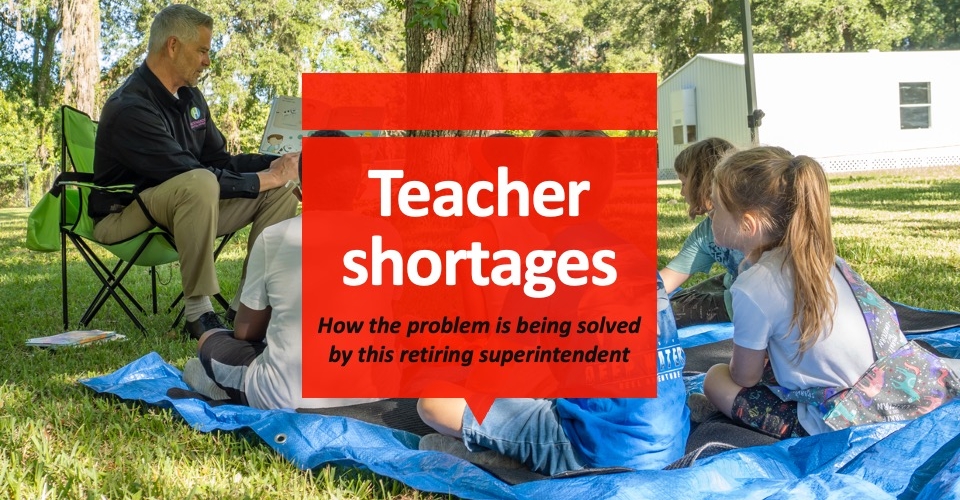Summer is fast approaching and school administrators are likely far along in the planning of their summer school programs. Amid heightening post-COVID learning gaps, declining student enrollment and decreasing budgets, the educational landscape has undergone a seismic shift, necessitating a more comprehensive approach to address the challenges facing students, teachers, and school districts.
As districts across the nation strategically allocate remaining ESSER funds, a unique opportunity arises to reimagine summer school programs as catalysts for holistic educational recovery. By leveraging insights from the collective experiences of the past few years, districts can design summer programs that not only target academic gaps but also prioritize mental health support and effectively integrate technology into the learning experience.
To help redefine existing viewpoints, summer school can be framed as an important skill-building opportunity that provides a needed pathway for students to fill gaps in learning or get ahead in their academic pursuits.
Offering personalized programs
Summer school is a valuable opportunity for students who need more specialized instruction and to review concepts they may not have mastered during the school year. In the digital age of virtual or hybrid learning, there are a variety of digital programs that are self-paced and tailored to meet each student’s needs by targeting specific areas of learning. Providing personalized learning means students will likely be more engaged with a curriculum that matches their interests and meets them where they are in their learning journey.
A tailored curriculum can strengthen learning potential. For example, if a student is uninterested in a certain subject, such as geometry, their attention may wander. But what if that geometry lesson was centered around that student’s favorite athletic team, music group or other interests, such as traveling, movies or technology? Teachers can better engage students in their classwork when they connect content to align with students’ interests, a practice that can make a notable difference in students’ success. With teachers available in person or virtually, students can feel supported while connecting with lesson material.
Bilingual learners can also benefit from specialized summer school programs. English learners often lose more learning during summers than their native English-speaking peers, and they can use summer school to receive additional support in their core learning courses and more one-on-one opportunities with their instructors.
‘Talking Out of School’ podcast: Sandy Hook Promise’s Nicole Hockley on to spotting students who need help
Specialized programs allow schools to choose which programs work the best for each student and focus on specific goals that get students back to grade level. The bottom line is a personalized approach ensures that each student receives the support they need to thrive academically.
Mental health and SEL in summer school
With mental health on a continuous decline, a focus on student well-being is imperative. Summer school programs can include social-emotional learning and mental health resources in their curriculum to support student learning.
Research consistently shows that SEL education not only boosts students’ emotional and social competencies but also their academic performance. Summer school models can include SEL lessons in their curriculum with multiple benefits for students.
Technology-enhanced learning
Adaptive learning technologies can play a pivotal role in summer school programs, providing targeted instruction and continuous progress monitoring to address specific areas of learning loss. The digital divide became increasingly apparent during the pandemic, underscoring the need for equitable access to technology in education.
Summer school programs can leverage digital tools to create interactive and engaging learning experiences that enhance academic outcomes and bridge the technology gap. Additionally, these tools can prepare students for the increasingly digital world they will encounter in higher education and the workforce.
AI is also undoubtedly demonstrating vast capabilities in education. AI’s ability to aid in brainstorming ideas, conducting research, generating study aids and more is propelling student learning. Technology continues to change the status quo of education for students and teachers. Summer school teachers may tap into AI’s capacity to alleviate mundane tasks such as grading and crafting lesson plans, allowing them more time to work with students one-on-one.
Professional development for teachers
Investing in training for teachers on new instructional strategies and technologies can go a long way toward the success of any learning program, including summer school. Offering courses, virtual or in-person, to share resources, insights and tools for teachers strengthens their abilities and helps them to empower students. These development opportunities should include teaching skills and mental health awareness.
Family engagement
Research shows that when educators involve families in the learning process, students progress more in their academics. By providing families with resources, information and workshops to support learning at home, summer school teachers and district leaders can help to ensure a more successful outcome for students.
By embracing a comprehensive approach to summer school, districts can position themselves as leaders in educational recovery, addressing the multifaceted challenges faced by students, teachers and communities alike. Through personalized learning programs, mental health and SEL integration, technology-enhanced learning, professional development for teachers and family engagement initiatives, summer school can become a transformative experience that not only bridges academic gaps but also nurtures the whole child and supports the entire educational ecosystem.
As districts continue navigating the post-pandemic landscape, reimagining summer school as a comprehensive educational recovery initiative is not just an opportunity—it is a necessity. By investing in these strategies, districts can equip students with the academic, emotional and technological skills needed to thrive in an ever-evolving world.









